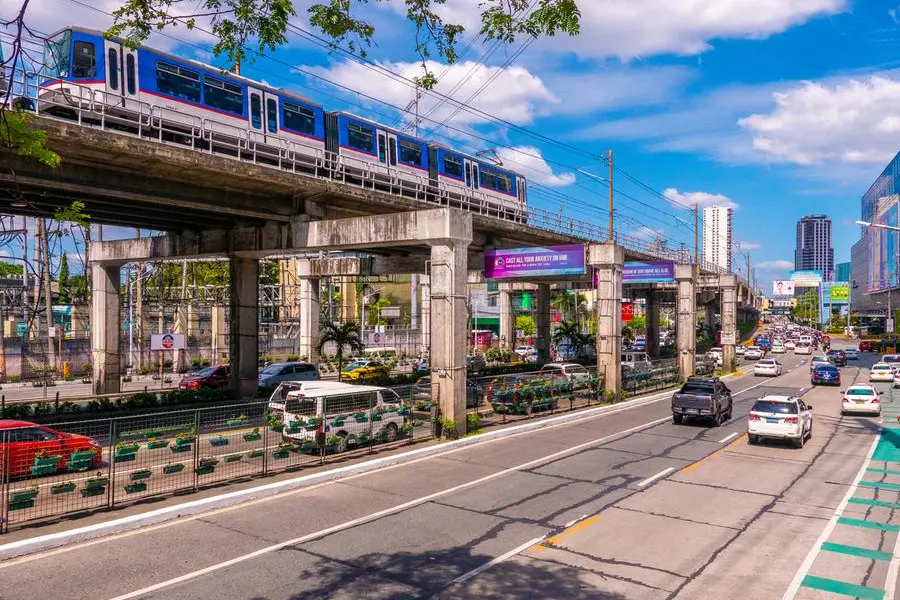PHOTO
In a recent business forum with international participants, President Marcos confidently stated that the government is tirelessly working to upgrade and improve the Philippines' transportation system, in the country's bid to become a 'leader in smart and sustainable transportation'.
Compared to the mass transport system in the more developed parts of the region namely Singapore, Japan, South Korea and Hong Kong, the Philippines face significant challenges. Still, President Marcos' bold declaration brings forward renewed hope for weary commuters and motorists who, on a daily basis, have been enduring long queues in bus and train stations, and losing countless hours due to the chaotic traffic system in the country.
Digital navigation site TomTom's 2023 Traffic Index report - which covers 387 urban areas globally - revealed that Metro Manila topped the list as the most traffic-congested metro in the world last year. According to the study, Filipinos in Metro Manila were on the road for about 240 hours in 2023, with 117 of those spent trapped in traffic, or almost five days lost.
The Philippines is yet to develop an efficient mass rail system that allows for seamless transfer between lines, without the need to shift to other transportation modes such as bus or taxicab.
I reiterate the points raised in my previous statements- mass transport, rail transit in particular, remains as the most effective and viable solution to our traffic woes. This system allows a simple and efficient way of moving from one place to another. Likewise, an effective rail system can also significantly reduce congestion on Metro Manila roads, consequently alleviating traffic challenges.
Case in point - Singapore has Mass Rapid Transit or MRT, Japan has Shinkansen, Hong Kong has Mass Transit Railway or MTR, and South Korea has Korean Train Express or KTX. These rail systems have significantly reduced travel time, allowing for more productivity and increased quality of life among the citizens.
A proposal submitted by the consortium of Metro Pacific Investments Corp. (MPIC) and Japan's Sumitomo Corp. aims to tackle these perennial problems in Metro Manila and elevate the country's transportation infrastructure to match that of its regional neighbors. Approval of this proposal is the crucial next step to transforming this vision into reality.
The consortium has proposed to rehabilitate, operate and maintain the Metro Rail Transit 3 (MRT-3), as well as to implement through-train operations connecting the MRT-3 with the Light Rail Transit 1 (LRT-1). This initiative aims to finally close the loop, creating an integrated transit network akin to those in other advanced countries.
Under the proposal, rehabilitation efforts will be integrated with the construction of the South Interconnection Facility, enabling seamless transfers between the MRT-3 and LRT-1. This initiative has recently been endorsed by the Public-Private Partnership Center, bringing it one step closer to realization.
If this is implemented, it is guaranteed to bring significant convenience not only to thousands of commuters but also to motorists alike.
Interoperability between the MRT-3 and LRT-1 will not only reduce travel time and lower transportation costs for commuters, it will also provide added convenience. Moreover, it will effectively contribute to decongesting EDSA.
The consortium estimates a 24 percent reduction in EDSA traffic volume if the MRT-3 and LRT-1 are integrated and if riding capacity is immediately increased.
The responsibility of operating and maintaining the train lines will also be assumed by the consortium, establishing accountability.
Meantime, on the part of the government, entrusting the maintenance and operations of the MRT-3 to the consortium will immediately cease the allocation of P1.3 billion in subsidies for the train line. These funds can then be redirected to bolster infrastructure projects or enhance social services.
Further, upon approval of the proposal, the government will promptly receive concession payments from the consortium.
Both MPIC and Sumitomo have demonstrated rail expertise, making this consortium the most qualified choice to take over operations of the MRT-3.
Through the Metro Pacific Light Rail Corp., MPIC has investments in the LRT-1 while Sumitomo has been credited for drastically improving the reliability of the MRT-3 as its maintenance provider. Sumitomo's expertise in Japan, renowned for its exceptionally efficient rail systems, is set to bring substantial improvements in the country.
As the Philippines continue to strive toward becoming an upper-middle-income country in the next few years, the need for a more efficient and reliable mass transport system is further highlighted to align and further advance the country's economic growth trajectory.
Our commuters deserve better. The acceptance and the eventual implementation of MPIC and Sumitomo's proposal is the decisive stride toward providing Filipino commuters with improved mobility through better transportation, alleviating traffic congestion and ultimately, supporting economic development.
Copyright © 2022 PhilSTAR Daily, Inc Provided by SyndiGate Media Inc. (Syndigate.info).





















